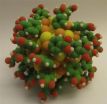(Press-News.org) Blindly copying what your parents did – no matter how stupid it may seem – could be the best strategy for the long-term success of your genes, according to research by the Universities of Exeter and Bristol.
The findings of the study, published in Ecology Letters, show that apparently mindless survival strategies – such as the long-distance migration of many animals to breed at the place they were born – may not be as impractical as they appear.
Using mathematical models, researchers compared the evolutionary success of straightforward copying strategies with that of more dynamic approaches that focused on adapting to new information to make key lifestyle decisions.
Dr Sasha Dall, from Exeter's Centre for Ecology and Conservation in Cornwall, said: "From an individual perspective, sometimes sticking to what your parents did may seem a ridiculously stupid thing to do, especially when they can be out of touch with current events. However, it's a different story when you look at it from the perspective of your genes.
"What we actually found is, in certain circumstances, it can be a more effective method of ensuring long-term survival of your genes than more nuanced strategies. So, surprisingly, this kind of mindless strategy can actually be more effective than the more sophisticated alternative of adjusting to changes you detect in your environment."
The conclusion centres around what they are calling the 'multiplier effect'. This states that if you are in exactly the right environment for your genotype, you will thrive and breed. So, over generations, more and more individuals will find themselves in conditions to which they are suited if they just do what their parents did.
Those in the wrong place for their genotypes will not do well and others who behave like them will leave fewer and fewer descendents – leaving those being born in the right places to dominate the population.
Professor John McNamara from the Bristol's School of Mathematics added: "The sheer fact you are alive is a big clue, because your parents must have got it right. If you follow their lead, you should get it right too.'
"Using a mathematical model, we've shown this is more successful than the alternative approach of adjusting behaviour to current conditions when the environment changes a bit, but not too much, between generations, and where there is a choice of both good and bad places to be.
"When you try to adapt to your environment, you can make mistakes which could prove costly or even fatal. Also, this approach may require a lot of time and effort – which again could limit the success it brings on an evolutionary basis."
This conclusion explains some of the seemingly impractical lifestyles seen in nature. For example, many sea turtles return to the same beach they were born on to lay their eggs, even though they swim past perfectly good beaches on the way.
While this may not seem like an efficient strategy, in the right conditions it can be a successful way of ensuring the long-term survival of your 'selfish' genes.
Dr Dall said: "This may not seem very smart, but those turtles are actually sticking to the safest bet there could be – the spot where they know their parents successfully gave birth to them.
"We're not saying that this works for every species or all of the time, but it does shed a bit of light on this interesting area of animal behaviour and evolutionary biology."
INFORMATION: END
The bones of people who died up to a hundred years ago are being used in the development of new treatments for chronic back pain. It is the first time old bones have been used in this way.
The research is bringing together the unusual combination of latest computer modelling techniques developed at the University of Leeds, and archaeology and anthropology expertise at the University of Bristol.
With Engineering and Physical Sciences Research Council (EPSRC) funding, spines from up to 40 skeletons housed in museums and university anatomy collections are being analysed ...
The SWAN (Simulating WAves Nearshore) wave prediction model developed at TU Delft has been a huge international success for many years. This model predicts the distribution of wave heights close to the shore. It was recently expanded to include the SWASH (Simulating WAves till SHore) model, which enables the modelling of wave behaviour right up to the shore, including how they break and overflow.
Over a 1,000 institutes worldwide use the SWAN computer model which is available within the public domain (GNU GPL license, http://www.swan.tudelft.nl). This model was recently ...
The starting point for this research is the recent and relentless transformation processes that the traditional irrigation network in the Mediterranean region has undergone and the subsequent degradation of some of its landscape, of great value from the point of view of productivity, patrimony and identity. The study deals with the relation between water and the agricultural landscape as well as the treatment of patrimonial values in public actions. "It is vital that hydraulic policy and modernization projects for watering infrastructure be designed based on the principle ...
Students' social skills and behaviour in social situations during their university studies contribute to their success in the transition to work. The social strategies adopted during university studies also have an impact on work commitment and early-career coping with working life. These results have been uncovered in a research project investigating the relationship between the social strategies students show at university and how well they cope with work-related challenges. The research has been carried out with funding from the Academy of Finland.
"The higher the ...
The growth in the demand of smartphones has highlighted the complexities of wireless communications through problems of reduced sensitivity when the user holds some devices. New research has been investigating this problem, along with developing new solutions to overcome the loss of connectivity.
The study by academics in the field of antennas and propagation in the University of Bristol's Centre for Communications Research (CCR) is published in the journal IEEE Antennas and Wireless Propagation Letters.
The paper builds on previous work that analysed multi-antenna ...
Researchers at North Carolina State University have developed a cheap and easy method for assembling nanowires, controlling their alignment and density. The researchers hope the findings will foster additional research into a range of device applications using nanowires, from nanoelectronics to nanosensors, especially on unconventional substrates such as rubber, plastic and paper.
"Alignment is a critical first step for developing devices that use nanowires," says Dr. Yong Zhu, an assistant professor of mechanical and aerospace engineering at NC State and co-author of ...
Ulysses Balis, M.D., clicks a mouse to identify a helicopter in a satellite photo of Baghdad, Iraq. With another click, an algorithm that he and his team designed picks out three more choppers without highlighting any of the buildings, streets, trees or cars.
Balis isn't playing war games. The director of the Division of Pathology Informatics at the University of Michigan Medical School is demonstrating the extreme flexibility of a software-tool aimed at making the detection of abnormalities in cell and tissue samples faster, more accurate and more consistent.
In a ...
UPTON, NY - A brain imaging study at the U.S. Department of Energy's (DOE) Brookhaven National Laboratory reveals a subtle difference between ordinary obese subjects and those who compulsively overeat, or binge: In binge eaters but not ordinary obese subjects, the mere sight or smell of favorite foods triggers a spike in dopamine - a brain chemical linked to reward and motivation. The findings - published online on February 24, 2011, in the journal Obesity - suggest that this dopamine spike may play a role in triggering compulsive overeating.
"These results identify dopamine ...
Nanometre-scale gold particles are currently intensively investigated for possible applications in catalysis, sensing, photonics, biolabelling, drug carriers and molecular electronics. The particles are prepared in a solution from gold salts and their reactive gold cores can be stabilised with various organic ligands. Particularly stable particles can be synthesised by using organothiolate ligands that have a strong chemical interaction to gold. The chemical process of preparing such particles has been known since the mid-1990s and many different stable sizes and compositions ...
Sexuality and religion are generally considered uncomfortable bedfellows. Now, for the first time, a team of researchers from Nottingham have carried out a detailed study around these issues and how they affect and influence the lives of British 18 to 25 year olds.
Led by The University of Nottingham, in collaboration with Nottingham Trent University, experts spent two years investigating the attitudes, values and experiences of sex and religion among young adults.
The study, which involved nearly 700 young people from six different religious traditions; Buddhism, Christianity, ...

